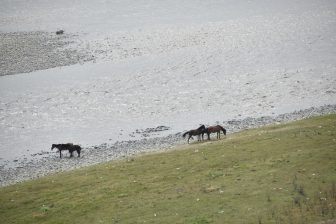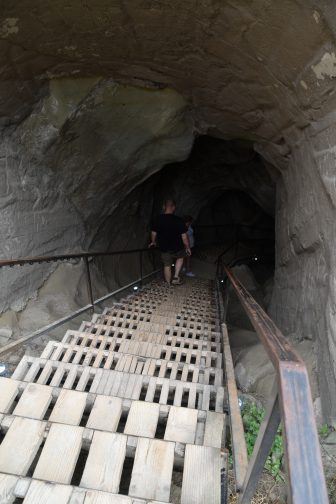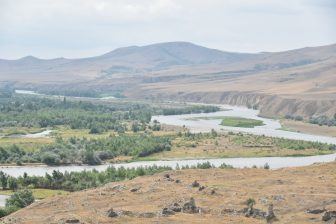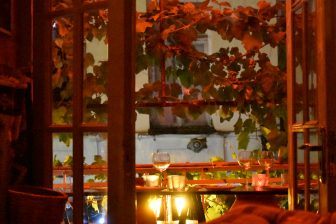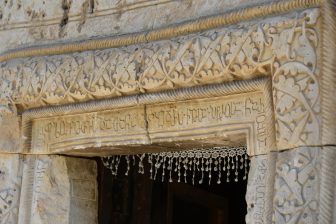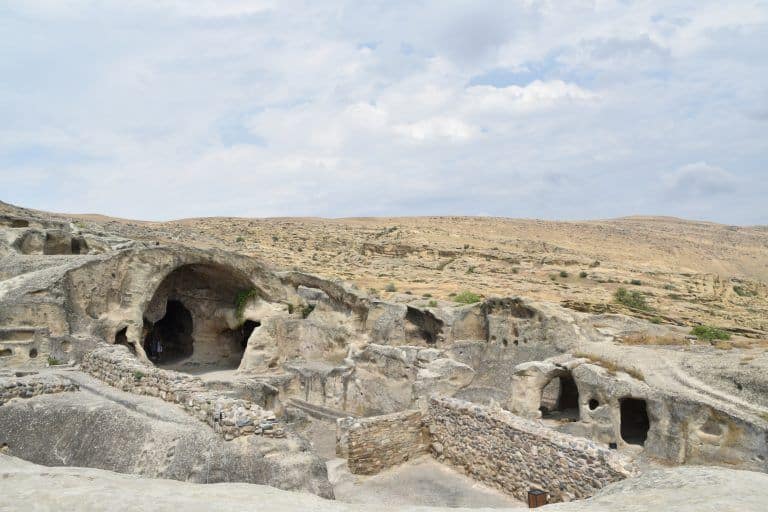
[ July, 2018 ] There is an ancient cave city called Uplistsikhe, which is only 10km east of Gori, the birthplace of Stalin.
According to our guidebook, this place was developed between the 6th century BC and the 1st century AD and it used to be one of the main cities before the Kingdom of Iberia (former Georgia) became a Christian country.
When 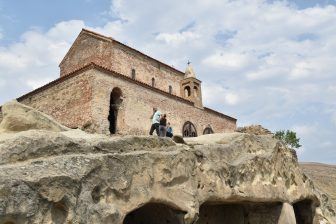
Uplistsikhe is situated on a hill along the Mtkvari River with many holes.
Our guide, Ana, said that there used to be as many as 700 holes or caves here, but now there are only 250.
What we saw was less than a half of how it was during its best days, when 20,000 people lived there.
Because of the Mongols’ attack in the 13th century and the earthquake afterwards, many parts were destroyed.
We saw what used to be the temple of the pagan belief, a hospital, a winery and so on.
We saw the grand view in which some horses were hanging around on the river from the hill, being nearly blown off by the strong wind.
On top of the hill, there was the 10th century basilica called Uplistsulis Eklesia.
Originally,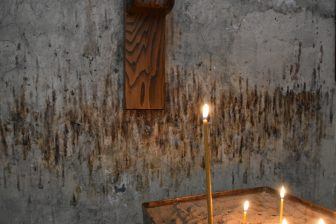
In the past, there were no candle holders so people stuck the candles on the wall and we saw the traces of that.
To get out of Uplistsikhe, we went through ‘a secret tunnel’, which was 3 metres wide and 64 metres long.
This was an emergency escape route or the river water supply route.
After Uplistsikhe, we went on to the west.
Just north of this area is South Ossetia, which is famous for the 2008 conflict.
Gori is the city which was bombed first by the Russians and Ana, who was 9 at that time and living there, remembers the day.
She said “We heard a big bang and thought it was an earthquake”.
Sarkozy, the French president at that time, came as the representative of the EU because France was the host country and mediated successfully, so the war ended in 5 days.
As a result, South Ossetia and Abkhazia became dependency to Russia, though officially they became independent from Georgia, which means Georgia lost 20% of its territory.
Ana, who is patriotic, said “But the people of these two areas are now regretting their ‘independence’, because Russia neglects them”.
My husband looked it up on the internet and found that if the EU had not intervened, there was a risk that the whole of Georgia would have been occupied by Russia again.
By the way, not only Sarkozy, but also the former Italian prime minister, Berlusconi, who is a good friend of Putin, made an effort to mediate these two countries.
Recently, he complained “People remember only Bunga Bunga about me and they have completely forgotten that I mediated between Russia and Georgia”.
When we went through this area by car, we could see the Russian force’s watchtower far away.
Currently, it is almost impossible for Georgian people to get into South Ossetia and we saw the refugee camp for Georgian people who ran away from South Ossetia, made up of one-storied small houses.

